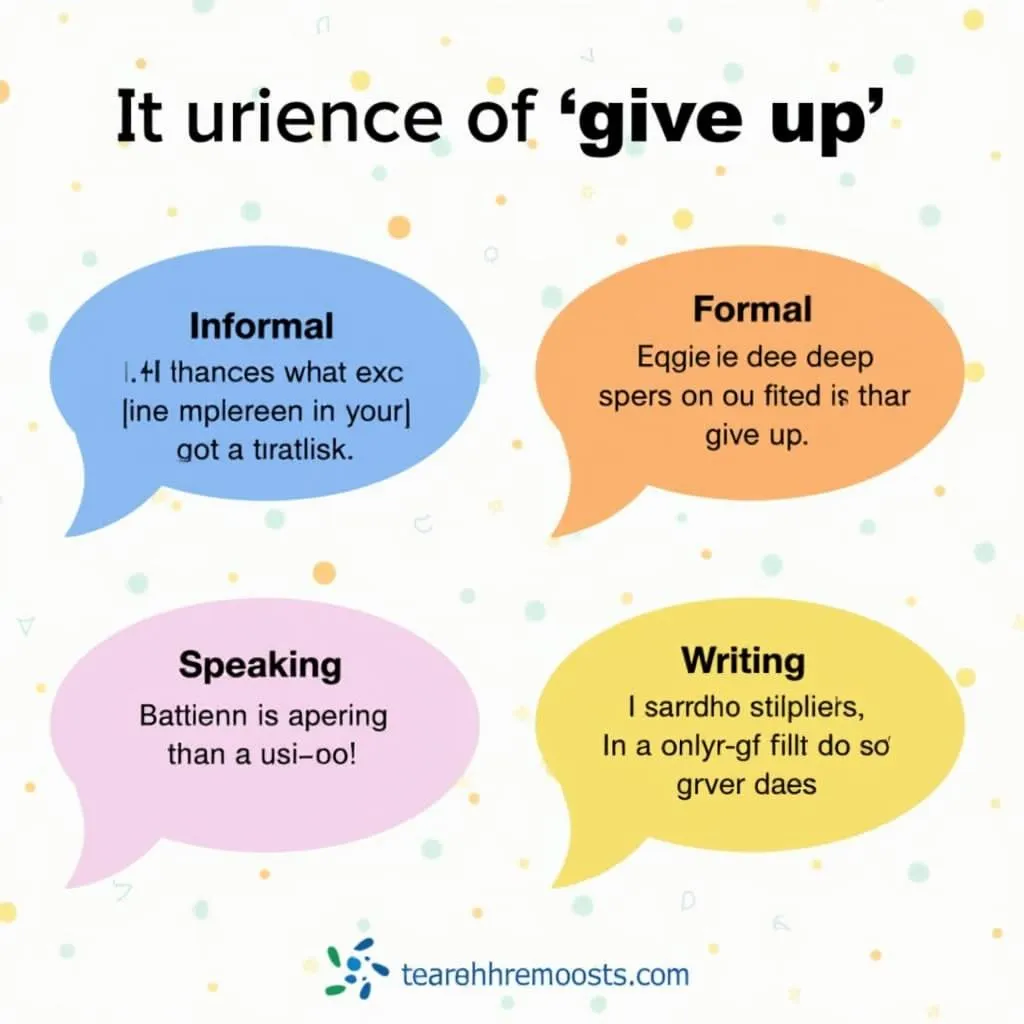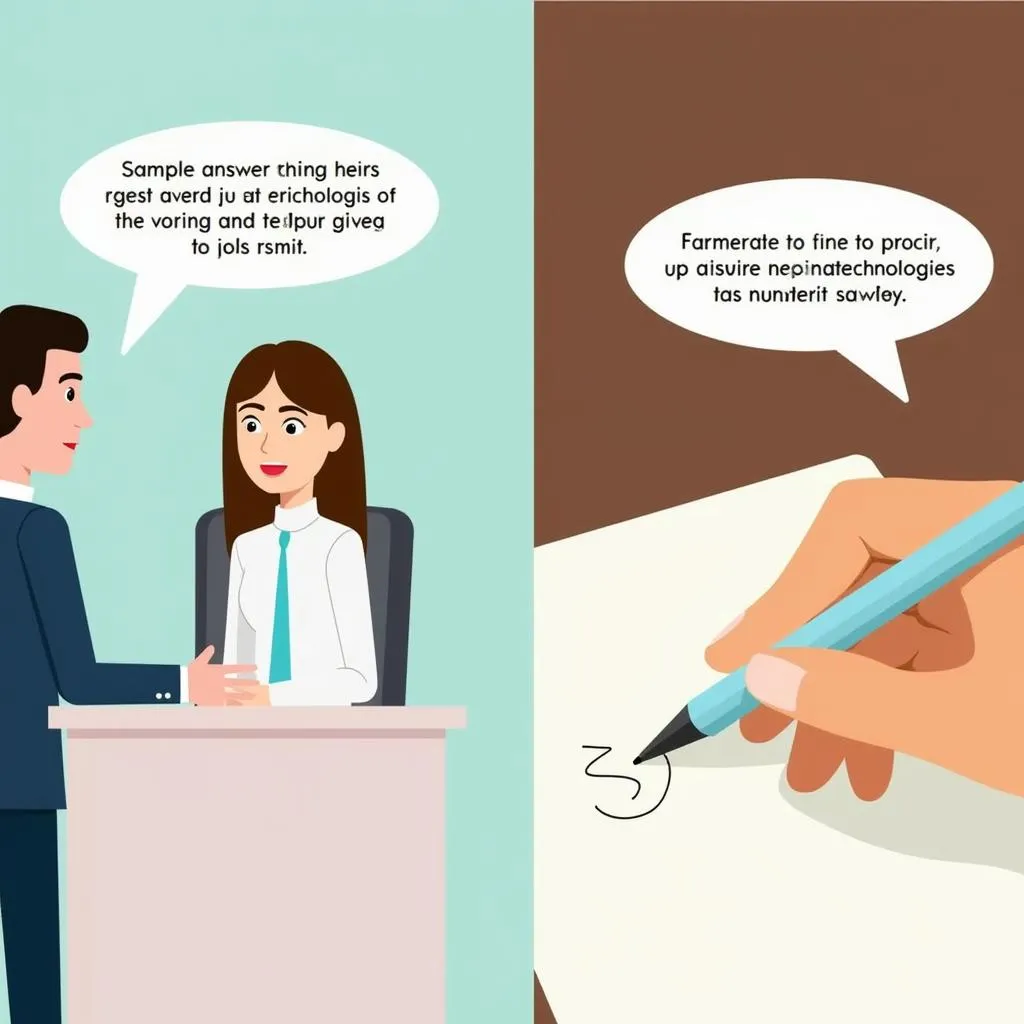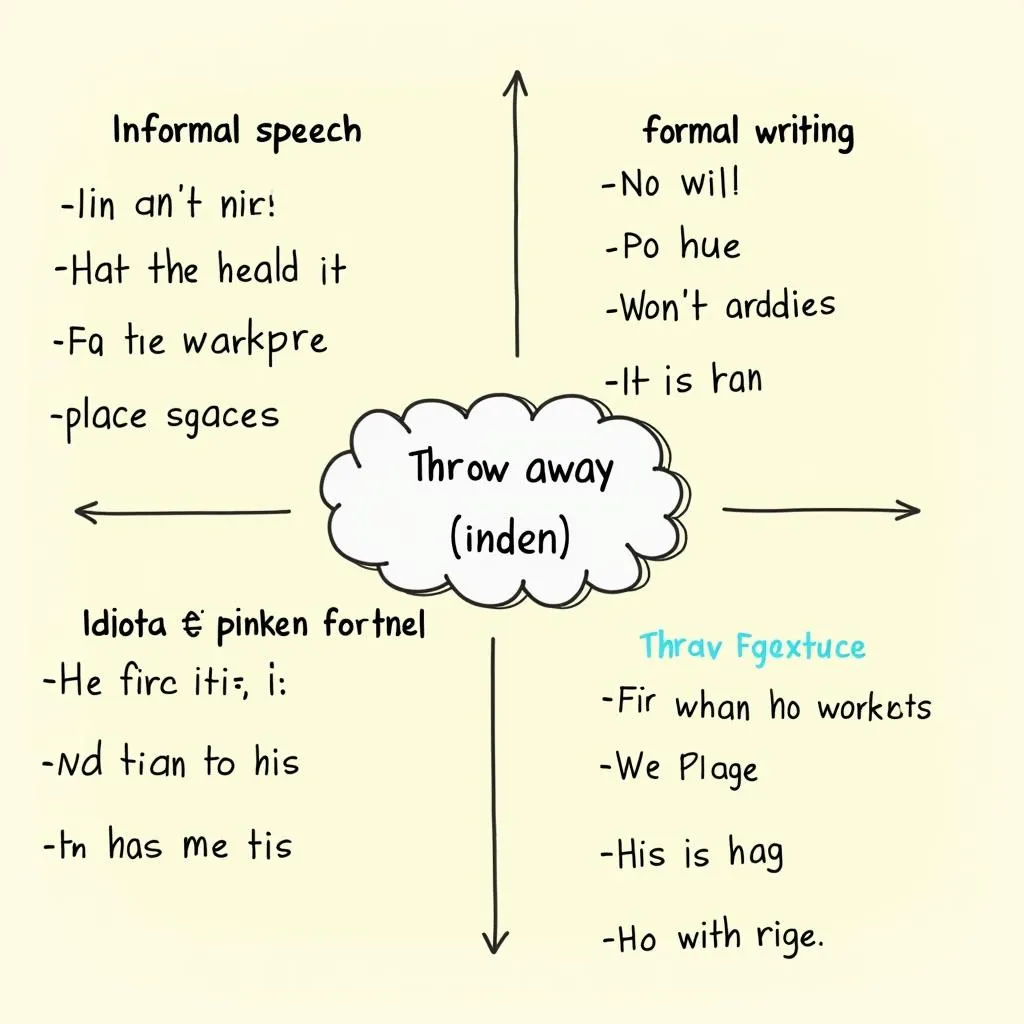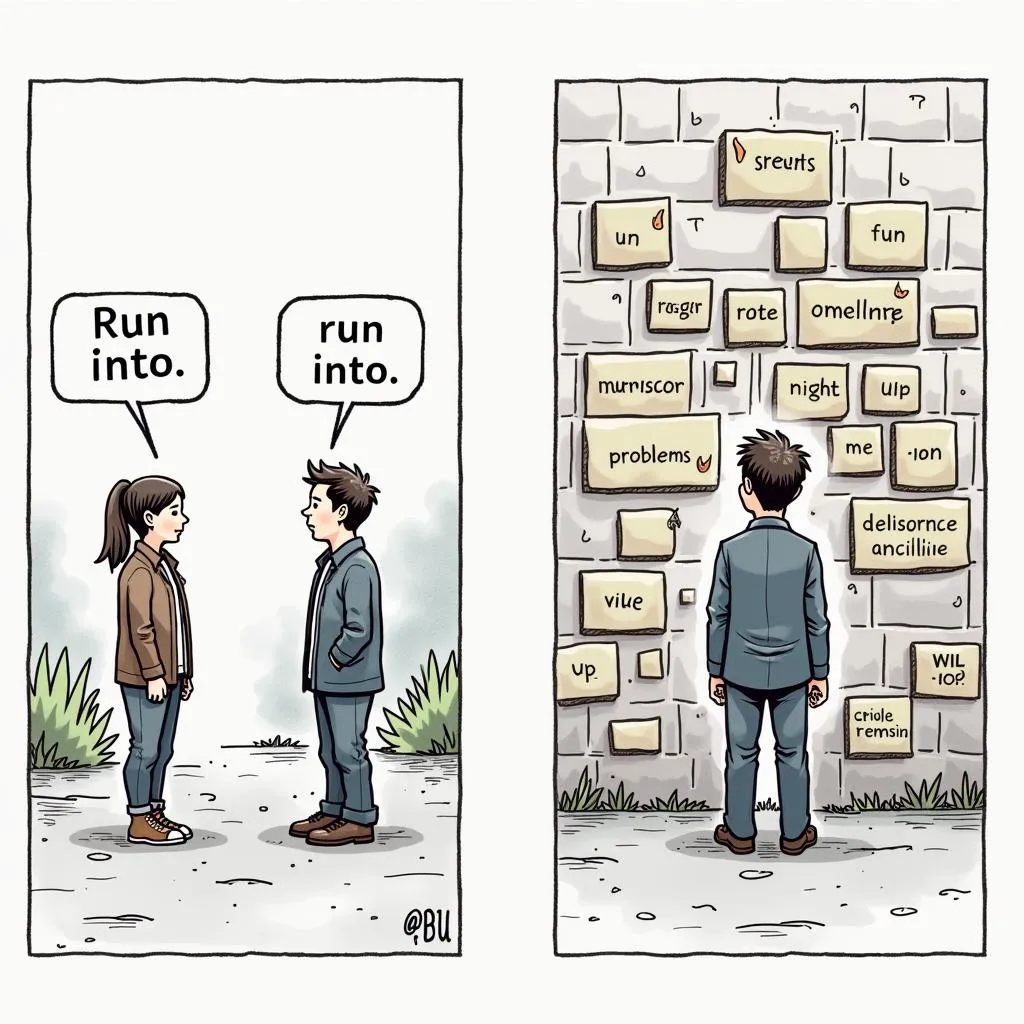1. Definition and Explanation
The phrasal verb “give up” is a commonly used expression in English that carries multiple meanings depending on the context. In its most basic form, “give up” means to stop trying or abandon an effort. It’s essential for IELTS candidates to understand its nuances to use it effectively in their speaking and writing tasks.
Nội dung bài viết
- 1. Definition and Explanation
- Primary meanings:
- 2. Usage in Context
- 3. Grammar Analysis
- 4. Application in IELTS
- In Speaking:
- In Writing:
- 5. Related Phrasal Verbs
- 6. Practice Exercises
- Fill in the blanks:
- Rewrite the sentences:
- 7. Memory Tips
- 8. Common Mistakes and How to Avoid Them
- 9. Conclusion
- Answers to Practice Exercises:
Primary meanings:
- To stop trying or abandon an attempt
- To surrender or yield
- To quit a habit or addiction
Synonyms: abandon, quit, surrender, relinquish, forfeit
2. Usage in Context
“Give up” is versatile and can be used in various situations, from casual conversations to more formal contexts. Here are some examples:
- Informal: “I’ve been trying to solve this puzzle for hours, but I think I’m going to give up.”
- Formal: “The company decided to give up its expansion plans due to economic uncertainties.”
- Speaking: “I gave up smoking last year, and it’s been a challenging but rewarding journey.”
- Writing: “Despite facing numerous obstacles, the team refused to give up on their project.”
 Examples of 'Give up' usage in different contexts
Examples of 'Give up' usage in different contexts
3. Grammar Analysis
“Give up” is a separable phrasal verb, which means that in some cases, you can place the object between “give” and “up.”
- Separable: “I decided to give smoking up.” or “I decided to give up smoking.”
- With pronouns: Always separate. “I decided to give it up.” (Not: “I decided to give up it.”)
Note: When using “give up” in perfect tenses, “given up” is the correct form.
4. Application in IELTS
In Speaking:
“Give up” can be effectively used to answer questions about challenges, personal growth, or lifestyle changes.
Example question: “Tell me about a time when you faced a difficult challenge.”
Sample answer: “A few years ago, I was struggling with a demanding job that was affecting my health. Despite the good salary, I realized I needed to prioritize my well-being. It wasn’t an easy decision, but I chose to give up that job and pursue a more balanced career path. This experience taught me the importance of setting boundaries and valuing personal health over professional ambitions.”
In Writing:
Incorporating “give up” in your essays can add depth to your arguments and showcase your vocabulary range.
Example: “While some argue that traditional farming methods should be preserved, many farmers are reluctant to give up modern technologies that significantly increase crop yields and efficiency.”
 IELTS Speaking and Writing examples using 'Give up'
IELTS Speaking and Writing examples using 'Give up'
5. Related Phrasal Verbs
-
Give in (/ ɡɪv ɪn /): To surrender or yield
Example: “After hours of negotiation, the company finally gave in to the employees’ demands.” -
Give away (/ ɡɪv əˈweɪ /): To donate or distribute for free
Example: “The charity gives away food and clothing to those in need.” -
Give off (/ ɡɪv ɒf /): To emit or produce
Example: “The flowers gave off a sweet fragrance that filled the room.” -
Give out (/ ɡɪv aʊt /): To distribute or to stop functioning
Example: “The teacher gave out the test papers to the students.” -
Give over (/ ɡɪv ˈəʊvər /): To stop doing something (British English)
Example: “Give over with that noise! I’m trying to concentrate.”
6. Practice Exercises
Fill in the blanks:
- After trying for hours, he finally __ __ and asked for help.
- She decided to __ __ smoking for her health.
- Don’t __ __ on your dreams; keep pursuing them.
- The old car finally __ __ after years of use.
- We need to __ __ some flyers to promote the event.
Rewrite the sentences:
- I stopped trying to learn French. (Use “give up”)
- The team surrendered in the final minutes of the game. (Use “give in”)
- The factory is emitting a strange odor. (Use “give off”)
- She distributes food to the homeless every weekend. (Use “give away”)
- My old phone stopped working yesterday. (Use “give out”)
Answers and explanations will be provided at the end of this article.
7. Memory Tips
To remember “give up” and its usage, try associating it with the image of physically lifting your hands up in surrender. This visual can help reinforce the idea of stopping an effort or surrendering.
Another technique is to create a memorable phrase: “Don’t give up on giving up bad habits!” This not only uses the phrasal verb but also emphasizes its meaning in a positive context.
8. Common Mistakes and How to Avoid Them
-
Incorrect word order with pronouns:
Incorrect: “I need to give up it.”
Correct: “I need to give it up.” -
Using “give up” when “quit” is more appropriate:
Less natural: “I gave up my job last month.”
More natural: “I quit my job last month.” -
Forgetting to change the verb form in perfect tenses:
Incorrect: “I have give up smoking.”
Correct: “I have given up smoking.”
To avoid these mistakes, practice using “give up” in various sentences and tenses. Pay attention to its usage in authentic materials like books, podcasts, and news articles.
9. Conclusion
Mastering phrasal verbs like “give up” is crucial for achieving a high score in the IELTS test. By understanding its multiple meanings, correct usage, and related expressions, you can significantly enhance your English language skills. Remember to practice incorporating “give up” and other phrasal verbs into your daily English usage, whether in speaking or writing. This will not only prepare you for the IELTS test but also improve your overall English fluency.
Don’t give up on your language learning journey! With consistent practice and application of phrasal verbs like “give up,” you’ll be well on your way to achieving your desired IELTS score and mastering the English language.
Answers to Practice Exercises:
Fill in the blanks:
- gave up
- give up
- give up
- gave out
- give out
Rewrite the sentences:
- I gave up trying to learn French.
- The team gave in during the final minutes of the game.
- The factory is giving off a strange odor.
- She gives away food to the homeless every weekend.
- My old phone gave out yesterday.
Remember, practice makes perfect. Keep using these phrasal verbs in your daily conversations and writing to become more comfortable and natural in your usage. This will greatly benefit you in your IELTS preparation and beyond.


